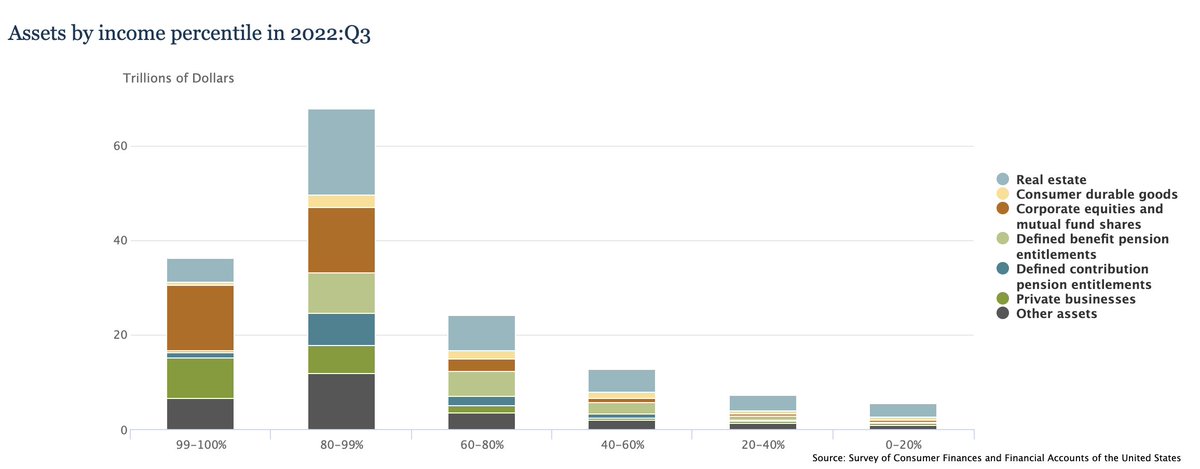
Boomers and older own 61% of #wealth & 72% of equities 

Self employment highest since 2008, but below peaks
Recent growth came from 1) women (+2% since 2020) and 2) Transportation and Warehousing groups
Recent growth came from 1) women (+2% since 2020) and 2) Transportation and Warehousing groups

The Great Resignation continues - highest quit rates in 20 years every month since April 2021, still at 2.7% 

Global wealth distribution: global middle class dominated by India, China, and Asia Pacific, US is 33% of world wealth 

Various regions of the world are more advanced in accessing certain wealth building products digitally
Asia leads in alt lending tech, US in wealthtech products
Asia leads in alt lending tech, US in wealthtech products

• • •
Missing some Tweet in this thread? You can try to
force a refresh


































